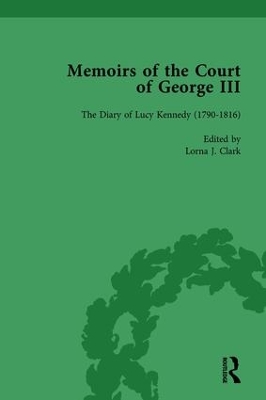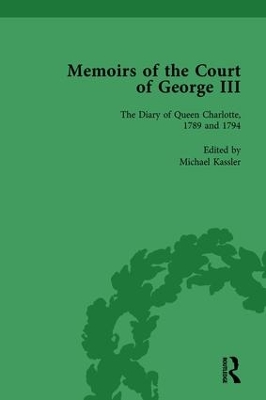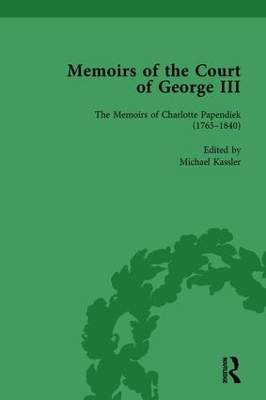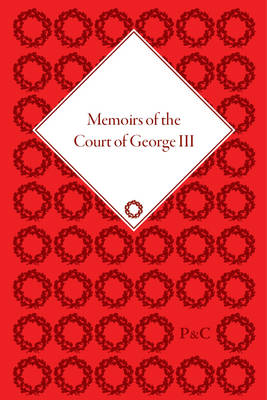Memoirs of the Court of George III
4 total works
The Diary of Lucy Kennedy (1793- 1816)
by Mr Michael Kassler, Lorna J. Clark, Alain Kerherve, and Peter Sabor
Lucy Kennedy (c.1731-1826), had an insider'sview of life in Windsor castle and of members of the Royal Family for fifty-three years. Her diary, preserved in the Royal Library, Windsor Castle, has never before been published.
In it she writes a moving account of the death of Princess Amelia which precipitated the final illness of George III and the Regency. Her observations of his symptoms are relevant for modern-day diagnoses of his malady.
The Diary of Queen Charlotte, 1789 and 1794
by Mr Michael Kassler, Lorna J. Clark, Alain Kerherve, and Peter Sabor
Queen Charlotte kept a diary in which she recorded her daily activities as well as those of George III and other members of the royal family. Only her volumes for 1789 and 1794 survive, in the Royal Archives at Windsor Castle.
Her 1789 diary shows how the king's illness and recovery impacted upon their lives. Both diary volumes provide hitherto unpublished information about court life and the royal family.
Mrs Papendiek's Memoirs record events at court from 1761 - when the future Queen Charlotte came to England to marry King George - until 1792. The Papendieks knew many musicians, including John Christian Bach (son of Johann Sebastian), William Herschel (who became an astronomer) and Haydn. The memoirs also record meetings with artists of the day, such as Thomas Lawrence and Thomas Gainsborough. They are a unique resource, recording significant information about living conditions, dress, education and Anglo-German relations.
Charlotte Papendiek's memoirs cover the first thirty years of George III's reign, while Mary Delany's letters provide a vivid portrait of her years at Windsor. Lucy Kennedy was another long-serving member of court whose previously unpublished diary provides a great deal of new detail about the King's illness. Finally, the Queen herself provides further insights in the only two extant volumes of her diaries, published here for the first time.
The edition will be invaluable to scholars of Georgian England as well as those researching the French and American Revolutions and the history and politics of the Regency period more widely. It will complement the ongoing project, The Court Journals and Letters of Frances Burney (OUP).



